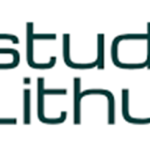There is no shortage of articles about the benefits, concerns, and opportunities that artificial intelligence, or AI, presents to the future of civilization. Just perform a simple Google search or soon ask Bard to examine the vast array of articles and studies detailing how AI might impact the future of any given subject.
After examining these articles, one could conclude that from its ability as an unparalleled work multiplier to its ability to create and edit lines of code, AI is here to stay – and it is not just a passing technological wonder like LaserDisc or Betamax.

In terms of its historical significance, the eagerness to incorporate AI across a variety of industries is akin to the printing of the Gutenberg Bible. However, unlike the printing press, which ushered in the era of movable type and concordantly the growth of independent, critical thought, AI represents a direct threat to thought, especially because of its historical timing.
Journalist Johann Hari recently published a book titled “Stolen Focus” in which he argues that the engrossing use of social media, especially by younger generations, has resulted in the inability of students to sustain deep focus on complex topics. As a result of growing up in an era where they are constantly distracted by screens, students have experienced a steep decline in critical reasoning and writing skills, both of which take a considerable amount of sustained focus to learn how to develop.
It is easy to place the blame for this decline at the feet of the COVID-19 pandemic and remote learning. However, most teachers would agree that student ability to critically reason and write were on the decline prior to 2019, and that the pandemic merely exacerbated these issues because of how much teachers needed to rely on technology to teach students.
Consider the results of the National Assessment for Education Progress test in both math and reading. The achievement results in both of these categories have been relatively flat or in decline since 2008. This decline coupled with the use of distance learning technology during the pandemic unintentionally enabled the negative habits of social media and smartphones to go from a slow trickle into the classroom to a torrent of obstacles at the center of the learning process.
It is in the wake of this erosion of student focus that AI finds the ideal preconditions for rapid uptake, legitimacy, and use by students to fill the vacuum where critical reasoning and writing skills used to be for previous generations. From this moment forward, AI will establish a watershed of new learning modalities for education, except unlike past modalities which have enabled students to develop critical reasoning and writing skills, AI will ultimately do the reasoning and writing for them.
AI will wrest control of critical thinking from generations of learners and cement itself as a homogenized arbiter of thought. In this scenario, students will be robbed of the basic purpose of education by becoming unflinching functionaries of an algorithm.
Some educators look at the dawn of generative AI as a new tool for learning that will do for writing and thinking what the calculator did and does for math. This argument for the blanket use of AI in education fundamentally misunderstands the historical timing of AI.
If AI came into existence with the abilities of Bard or ChatGPT prior to 2007, this argument might be more valid. Prior to 2007, social media did not exist to a large degree and as a result, many students had fewer distractions to contend with and would have had fewer technological bad habits to approach AI with. As a result, students would have developed independent critical reasoning and writing skills before they interacted with AI. Such interactions could have been used to supplement and broaden these independently cultivated skills.
It is easy to get lost in alarmism when new technologies replace old modes of thinking and doing. Even Socrates thought that the invention of writing would destroy thinking because it would lead to everyone forgetting what they had written down because they did not have to remember their thoughts. Socrates was wrong about the impact that writing would have on thinking. Historically, the written word had proven to be the single most powerful transmitter of knowledge and has led to the proliferation of human ingenuity.
While the example of Socrates illustrates the unfounded anxiety many have felt when new technologies emerge, it is a straw man understanding of the nuanced perpetual threat that AI presents to independent, critical thought.
Presently, generative AI is in its least capable form. Therefore, the argument that “AI cannot do x,y, and z” is moot. GPT-4 is already passing medical exams. What will it be capable of in 10 years? Are we looking at a future where students are incapable of discerning the difference between information and disinformation because they have relied on an AI to evaluate evidence for them? It is not alarmist to postulate a near future where this is the norm for students, especially since most of them have had their ability to sustain focus torn away by social media.
New Hampshire Teacher of the Year finalist Jennifer MacLeod recently remarked that education is approaching “dark days” with the onset of generative AI within the classroom. These days may come, and educators need to learn to live and teach with generative AI as another tool in their toolboxes. However, learning to live with generative AI will establish a paradigm shift in education and how students learn to think, and it might not be for the better.




















Add Comment